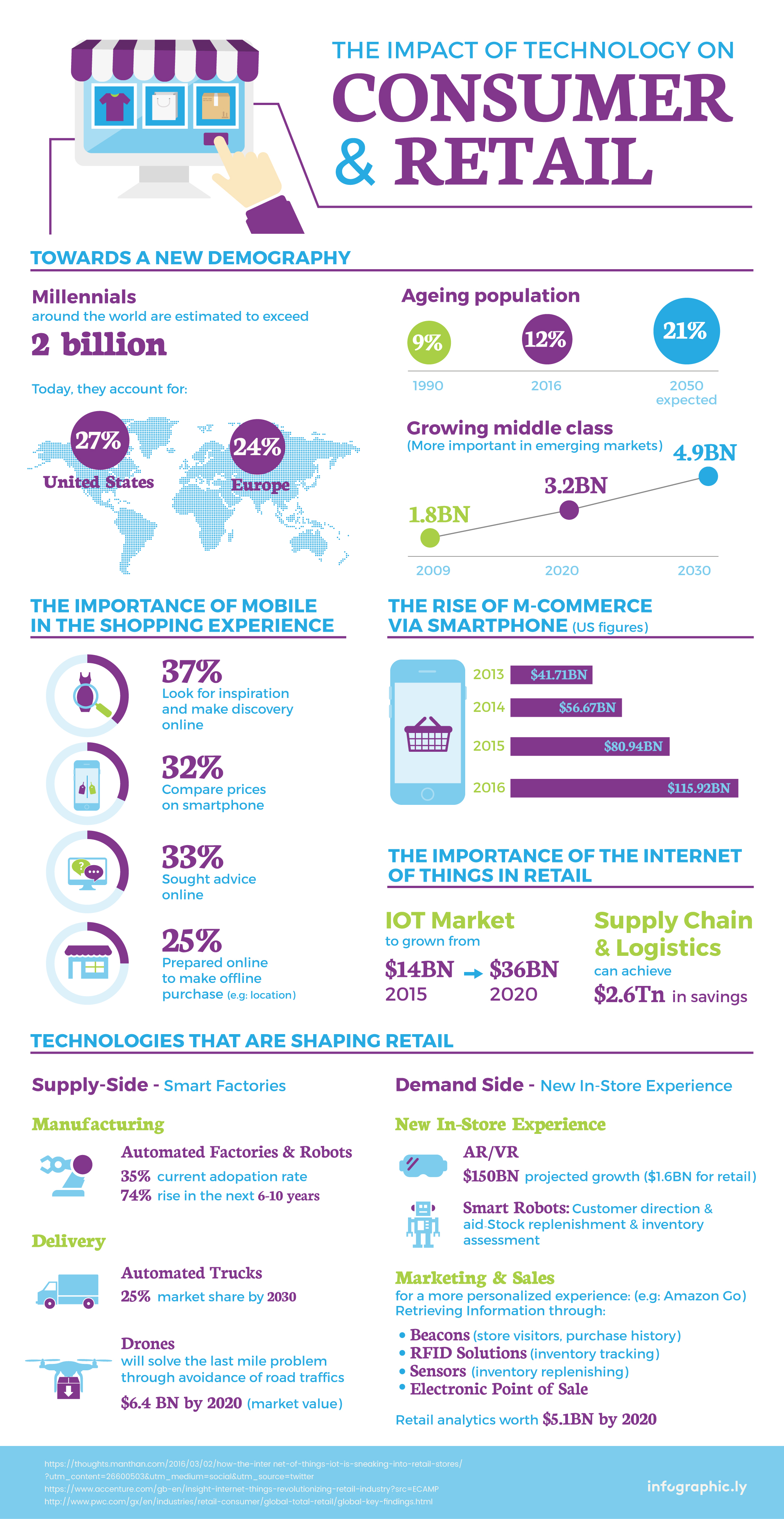[INFOGRAPHIC] The Impact of Technology on Consumer and Retail
The rise of cloud- and quantum computing means that the value chain for retail companies is becoming increasingly interconnected. The lines between factories, stores and homes are becoming blurred as retailers, brands and consumers will seamlessly interact with each other on a regular basis. With a changing demographic, companies have to adapt the new needs and wants and adapt their technologies to best serve millenials, ageing populations and the emerging middle-class.
An important component of all this change is the rise in the use of mobile (m-commerce) which has almost doubled since 2014. Total mobile sales are expected to reach $115.92Bn in 2016. Mobile has become an integral part of the consumer experience and whether shoppers use it as a means to purchase, they also invest a lot of time, in and out of stores to research prospective products. Indeed, 37% of mobile users, operate their smartphones to look for inspiration and make discovery online, 32% compare prices, 33% seek advice online and 25% research online to make offline purchase. Using online and mobile as their platforms, retailers invest their resources to create a more personalized experience for their customers.
The internet of things, which has become this year’s favorite buzzword, has found the importance of its place within the retail industry. Be it on the supply-side technologies or demand-side, the IoT market is projected to grow from $14Bn in 2015 to $36Bn in 2020 and with IoT, supply chain and logistics can achieve $2.6Tn in savings:
Smart Factory: Optimising Supply Chain Operations
The factory of the future will incorporate technologies that will allow for real-time adjustments to production, which will become essential in the face of higher frequency and uncertainty of demand. By implementing RFID chips for example, companies can track product inputs more precisely across their value chain (Gregory, 2015). A key benefit of this is that factories will be able to anticipate delays in delivery of materials and instantly include other suppliers in its delivery schedule.
Smart Stores: Personalised Shopping Experience
While the factory and the home of the consumer are becoming increasingly connected, the store will stay play an essential role in the retailing process. In-store Bluetooth beacons will instantly give sales associates information on frequent store visitors such as purchase history, and enable them to improve the in-store experience (Electronic points of sale will enable companies to instantly update their inventory and collect more customer data, which can be directly sent to factories and distribution centers. Suppliers will be able to monitor directly the quality of perishable items through sensors, and will be notified when stock needs to be replenished.

